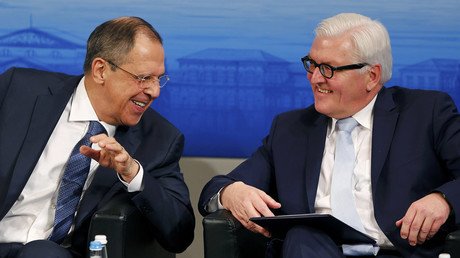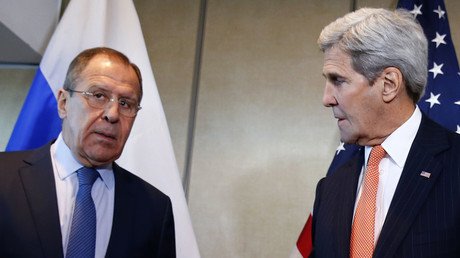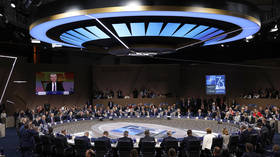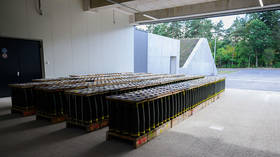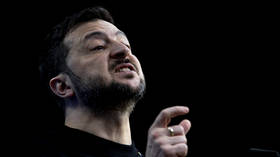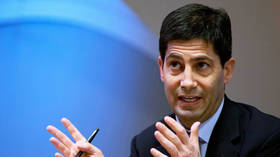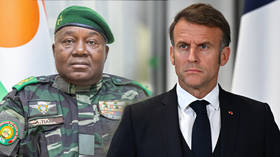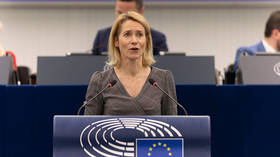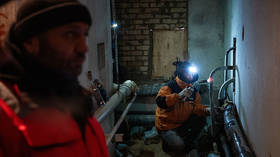Lavrov, Kerry discuss concrete steps on military cooperation in Syria in ‘excellent’ Munich meeting
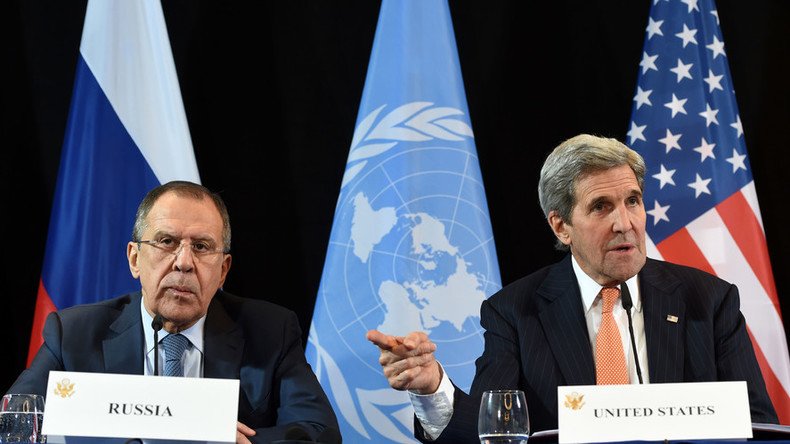
Russia’s Foreign Minister, Sergey Lavrov, and US Secretary of State John Kerry have met again in Munich to discuss concrete steps needed to implement the agreements on the coordination of military efforts in Syria, Russia’s Foreign Ministry said.
“Interaction between the military bodies has been especially emphasized in order to implement the agreements reached within the framework of the International Syria Support Group (ISSG),” Foreign Ministry spokeswoman Maria Zakharova said after the meeting.
“Concrete steps to be undertaken in the coming days to put this into practice were discussed,” she added.
Saturday’s meeting between the top Russian and US diplomats as part of the Munich Security Conference was initiated by the American side, Zakharova stressed.
“The US Secretary of State had come forward with a proposal to hold a meeting which focused only on the Syria crisis settlement in the context of the statement adopted by the International Syria Support Group in Munich,” she said.
Kerry described his meeting with Lavrov as “excellent,” when asked about it by the reporters in the capital of the German state of Bavaria.
US State Department spokesman John Kirby said that the sides “went over plans for the organization and essential tasks of the task force charged to develop modalities for a cessation of hostilities in Syria.”
The establishment of a UN task force to coordinate humanitarian aid in Syria was also “briefly discussed” by Kerry and Lavrov.
As participants in the ISSG talks in Munich on Thursday, Russia, the US and the UN agreed on an ambitious plan intended to stop hostilities in Syria.
It includes such aims as reaching a verifiable ceasefire within a week, reviving the Geneva-3 peace talks between the Syrian government and opposition, and immediately commencing humanitarian aid deliveries to civilians.
The document also stated that it's up to the Syrian people to decide the future of the government in the country.
However, prior to the meeting with his Russian counterpart, Kerry once again repeated the US stance that the Syrian conflict won’t see an end while President Bashar Assad remains in power.
READ MORE: Turkish military shells Kurds fighting Islamist rebels in northern Syria
He also said that the opposition isn’t going to surrender despite the military gains recently made by Syrian government troops with the help of Russia airstrikes.
“The Syrians who have rejected Assad have endured four years of shelling, barrel bombs, gas, Scud missiles, chemical attacks, torture, and they may be pushed back here or there, but they are not going to surrender. I don’t believe there’s anybody who believes they will,” Kerry said.
Lavrov slammed the Pentagon earlier for denying that the ISSG agreement called for an increase in military cooperation between Moscow and Washington.
Pentagon spokesman Captain Jeff Davis said on Friday that “there is no change” in contacts between the US and Russian forces in Syria and that cooperation would remain limited to exchanging information to prevent accidents in the sky.
However, the Russian FM pointed out “Contacts between the military are fixed in that declaration [ISSG communique].”
The statements by the Pentagon are calling into question the implementation of the ISSG accords, he stressed, adding that “if the US ‘moves backwards,’ it undertakes a colossal responsibility.”
“The key instrument in settlement of both the humanitarian problem, and the truce problem is establishment of a daily, hourly cooperation, and coordination between the US military leading their coalition and the Russian Federation’s military, since we are working in Syria at the invitation from the Syrian government,” Lavrov said.
According to the FM, it’s important for the US to cooperate with Russia in Syria as Moscow “has certain influence on Damascus.”
READ MORE: 'Putin is winning Syria,' declares former US ambassador to Russia in odd tweet
The Syrian civil war has been raging since March of 2011, taking the lives of over 250,000 people, according to UN estimates.
During this period, the government of Assad has been battling various opposition groups, including jihadists from Islamic State (IS, formerly ISIS/ISIL) and Jabhat al-Nusra.
The US-led coalition began bombing IS in Syria in 2014 after the terror group captured large swathes of land in the war-torn nation and neighboring Iraq.
Russia launched its air campaign against terror targets in Syria in September of 2015 at the official request of President Assad.
Russia launched its air campaign against terror targets in Syria in September of 2015 at the official request of President Assad.
